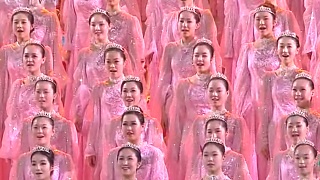With Middle Kingdom Productions ...
[640],shadow=true,start=,stop=Nanjing, known as the Southern Capital, is one of China's most historically significant cities and a vibrant modern metropolis. Situated in the Jiangsu Province, Nanjing offers visitors a blend of rich history, cultural heritage, scenic landscapes, and modern amenities. Here's a guide to Nanjing for visitors:
Historical and Cultural Attractions:
Nanjing City Wall: Explore the remnants of the ancient city wall, one of the most well-preserved in China, offering panoramic views of the city and surrounding areas.
Sun Yat-sen Mausoleum: Pay homage to Dr. Sun Yat-sen, the founding father of modern China, at his grand mausoleum located at the foot of Purple Mountain.
Confucius Temple (Fuzimiao): Immerse yourself in traditional Chinese architecture, visit the Confucius Temple, and stroll along the Qinhuai River, known for its lively atmosphere and historic charm.
Nanjing Massacre Memorial Hall: Commemorates the victims of the Nanjing Massacre. Learn about this tragic chapter in history.
Presidential Palace: Explore the former presidential residence of China's early republican era, showcasing exhibits on Chinese history and culture.
Jiming Temple: Visit one of Nanjing's oldest temples, known for its serene atmosphere, beautiful gardens, and ancient pagodas.
Natural Beauty:
Purple Mountain (Zijin Shan): Escape the urban hustle and bustle with a visit to Purple Mountain, home to scenic hiking trails, tranquil lakes, and historical sites like the Ming Xiaoling Mausoleum.
Xuanwu Lake: Relax by the shores of Xuanwu Lake, a picturesque oasis in the heart of the city, offering boat rides, walking paths, and lush greenery.
Modern Landmarks:
Nanjing Olympic Sports Center: Experience modern Nanjing at the Olympic Sports Center, home to state-of-the-art sports facilities, shopping malls, and entertainment venues.
Nanjing Eye Pedestrian Bridge: Take a leisurely stroll across the Yangtze River on the Nanjing Eye Pedestrian Bridge, offering stunning views of the city skyline.
Culinary Delights:
Nanjing Salted Duck: Sample this local delicacy, known for its savory flavor and tender meat, at traditional restaurants throughout the city.
Nanjing Dumplings (Soup Dumplings): Indulge in Nanjing's famous soup dumplings, filled with flavorful broth and served piping hot.
Practical Information:
Transportation: Getting around Nanjing is easy, with an efficient public transportation system including buses, metro, and taxis.
Accommodation: Nanjing offers a range of accommodation options, from luxury hotels to budget-friendly hostels, catering to different preferences and budgets.
Language: Mandarin Chinese is the official language, but some locals may speak English, especially in tourist areas.
Nanjing's blend of historical significance, natural beauty, cultural richness, and modernity makes it a compelling destination for travelers seeking a diverse and immersive experience in China.
 Snow in NanJing
Snow in NanJing



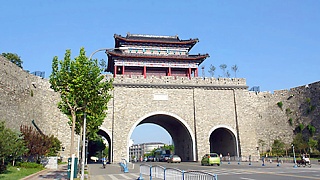
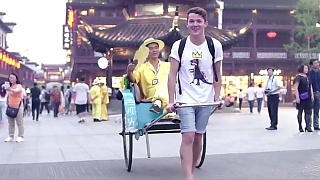




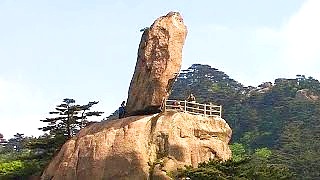

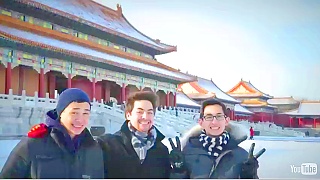

![A great film of the Great Wall north of Beijing, including `wild wall`, accompanied by great music (踏古 (Ta Gu) by Lin Hai, `Walking into Ancientry`, with Chinese lute (pipa)). We [mum, dad - videographer - and son and daughter, from Singapore] hiked 3 sections of the Great Wall in winter, without any guides after studying blogs and posts by fellow hikers. All these sections are different. From the unrestored GuBeiKou Great Wall where we were the only people around, to the wonderful JinShanLing, where the climb is steep and every direction gives you good photo opportunities, to the restored MuTianYu where we hiked in heavy snowfall. We stayed at local farmhouses on both nights, dined with the locals and hitched rides to nearby bath-houses. Temperature ranged from -5 deg C (day) to -12 deg C (night). Winter daybreak is at 7am and the sky becomes dark by 5pm so one has only 10 hours of daylight, so plan your travelling and hiking schedules carefully. This once-in-a-lifetime experience was captured on video and we would like to share it with you. The feelings just can`t be described - you need to experience it first hand. Take only memories, leave only footprints and kindness . . . A wonderful animation combining traditional Chinese painting and dance - don`t miss it ! 踏古-林海 作曲:林海 视频作者:中国传媒大学动画学院 Hiking the Great Wall 长城 of China in the snow](https://www.beijingbuzzz.com/b183.jpg)









